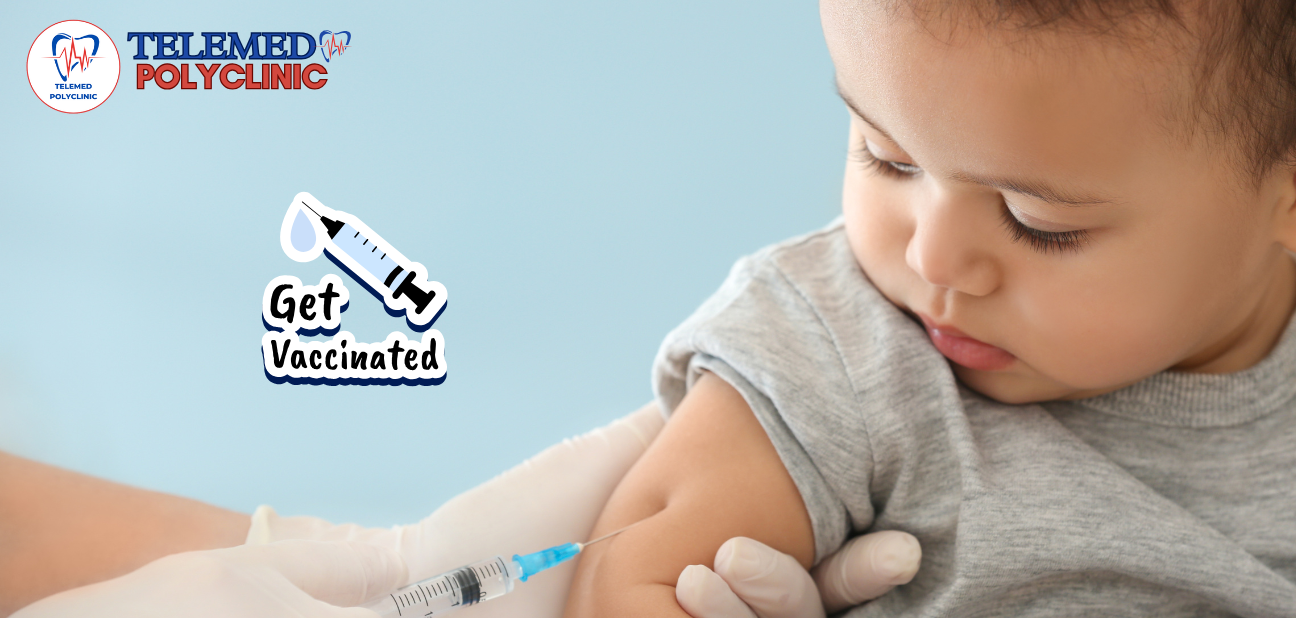Posted on March 6, 2025

When you get sick, your body makes antibodies to fight the disease to help you get better. These antibodies stay in your body even after the disease is gone and protect you from getting the same illness again. This is called immunity. However, you don’t have to get sick to develop immunity. You can gain immunity against disease through immunization.
Immunization (or vaccination) protects people from disease by introducing a vaccine into the body that triggers an immune response, just as though you had been exposed to a disease naturally. The vaccine contains the same antigens or parts of antigens that cause the disease, but the antigens in vaccines are either killed or greatly weakened. Vaccines work because they trick your body into thinking it is being attacked by the actual disease.
Immunity through immunization happens without the consequence of being ill and without the risk of potentially life-threatening complications from the disease. Once a person is immunized, specific immune cells called memory cells prevent re-infection when they encounter that disease again in the future. However, not all vaccines provide lifelong immunity. Vaccines such as the tetanus vaccine require booster doses every ten years for adults to maintain immunity.
At any age, vaccinations offer the most effective and long-lasting protection against diseases. Vaccine-preventable illnesses can be severe and may lead to life-threatening complications that necessitate hospitalization. This is particularly concerning for infants and young children, who are especially vulnerable. Ensuring that children receive their vaccinations on time is crucial, as it provides them with essential protection against diseases before they are exposed.
Immunization is vital not just during childhood, but also in adulthood, to promote healthy aging. Childhood vaccinations do not guarantee lifelong immunity against certain diseases, such as tetanus (lockjaw) and diphtheria. Adults need booster shots to sustain their immunity. Additionally, adult vaccinations may be advised to safeguard against diseases prevalent in later life, such as shingles.
Adults who were not sufficiently immunized during childhood may face a higher risk of contracting other vaccine-preventable diseases and can potentially spread these illnesses to others. For instance, adults who contract measles, mumps, or pertussis (whooping cough) can transmit these diseases to infants who may not yet be fully vaccinated. Since the advent of vaccines, numerous serious illnesses have been effectively controlled.
The Expanded Programme on Immunization (EPI) was launched in Pakistan in 1978 to protect children by providing immunizations against several childhood diseases, including tuberculosis, poliomyelitis, diphtheria, pertussis, tetanus, and measles. With the support of development partners, additional vaccines were introduced over the years: hepatitis B in 2002, Haemophilus influenzae type b (Hib) in 2009, and the pneumococcal vaccine (PCV10) in 2012. The inactivated polio vaccine was introduced in 2015.
EPI also aims to protect mothers and newborns from tetanus. By immunizing children with these vaccines, the program can potentially prevent up to 17% of childhood mortality in Pakistan, thereby contributing to the achievement of Sustainable Development Goal (SDG) 3, which focuses on reducing child morbidity and mortality. Additionally, the program introduced the rotavirus vaccine in 2017 to help prevent severe diarrhea caused by rotavirus.